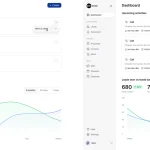
Structure can have more than just an effect on tax payments; it also determines your personal liability and whether or not a venture can raise capital.
An LLC provides members with greater asset protection by protecting them from debt incurred by the business and allows for pass-through taxation as well as operational flexibility.
Taxes
LLCs provide members with protection from business debts and liabilities that could potentially adversely affect them – this cannot be said of sole proprietorships and general partnerships, hence making LLCs popular among small businesses.
An LLC’s flexible management structure offers its members many advantages; members can decide how profits will be divided, unlike in the case of a corporation where profits must be distributed according to shareholders’ shares of capital stock.
Selecting between partnership, C corporation, S corporation or sole proprietorship taxation regimes is beneficial to business operations. Selecting an ideal taxation regime depends on factors like business volume and income generated; LLCs offer double taxation relief by passing profits/losses directly through to their individual owners’ personal tax returns instead of being subject to double taxation; this helps cut administrative costs significantly.
Management
While sole proprietorships and partnerships offer some limited liability protection for owners, LLCs tend to offer greater shielding. Like shareholders of a corporation, members don’t personally owe debts or legal obligations incurred by their business – which safeguards assets like homes, vehicles and savings accounts from becoming liabilities for its debts and legal obligations.
An LLC also provides greater management flexibility. While state law typically places control of an LLC with its members, an operating agreement may stipulate that instead managers will run it. Furthermore, profits, losses and tax items will be distributed differently among ownership interests for greater flexibility when allocating financial benefits and management perks.
LLCs typically enjoy perpetual existence, meaning the death or withdrawal of one member doesn’t necessitate dissolution like in other types of entities would do. This feature can be particularly advantageous to businesses hoping to attract investors.
Liability
An LLC provides owners, commonly known as members, with liability protection by protecting their personal assets from business debts and liabilities. If a business cannot pay its debts as promised, creditors cannot seize individual properties such as houses or savings accounts belonging to members as collateral for payment of those debts.
An LLC not only offers limited liability protection, but it also features pass-through taxation and easier record keeping than corporations, making it easier for small businesses to find investment and outside funding sources.
However, an LLC could become vulnerable if its owner engages in fraud or mixes personal and business finances together. Still, most businesses find the benefits of an LLC outweigh its risks; to be safe it’s wise to consult an attorney when making this decision to ensure your business is properly structured and managed to maximize its potential.
Dissolution
One of the primary advantages of an LLC is limited liability protection for its owners. If the business goes bankrupt or is sued, their personal financial assets will be shielded from legal action or debts incurred by it; something sole proprietorships or general partnerships cannot offer.
An improper dissolution of an LLC leaves both its owners and investors exposed, potentially leaving them responsible for meeting past financial obligations such as annual reports, fees or minimum taxes that have accrued since dissolving.
Knowledge of the dissolution process for an LLC can ensure its completion in accordance with both state law and its operating agreement, while distributing assets evenly among members – this may involve settling debts with claimants, selling assets and closing down business bank accounts.


